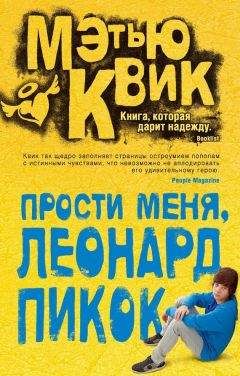Stuart Kaminsky - The Dog Who Bit a Policeman
Paulinin grunted, adjusted his glasses, and stood at the rear of the boat next to Rostnikov, looking down at the dead man. Behind Paulinin, Karpo said, “He’s a member of the Tatar Mafia. The tattoo is theirs.”
“A start,” said Rostnikov. “Paulinin?”
“By the condition of the corpse, I would say he has been in the water less than a day, perhaps much less. My guess? He died last night. But. .”
Paulinin looked around, found a grappling pole, and awkwardly but carefully nudged the corpse toward the boat. He used the flat side of the pole to keep from damaging the bloating corpse.
“Hold this,” Paulinin said, handing the pole to Karpo, who took it and firmly pulled the body closer to the boat.
“We must turn him over,” said Paulinin.
“Officer Druzhnin, please,” said Rostnikov.
The young officer climbed over the rear railing, feet on a narrow platform near the water level and one hand on the railing. He reached down and tried to turn the naked corpse over on its back, but the man was too heavy and slippery. Karpo moved forward and joined the young officer. Together, they managed to turn the corpse. Druzhnin held the body awkwardly to keep it from turning facedown again.
Paulinin looked down at the corpse.
The dead man was thick necked and had a well-trimmed short beard. A dark hole burrowed into his forehead just above the bridge of his nose. He also had three dark spots in his hairy chest and stomach.
“Pull him up here, carefully,” said Paulinin.
Karpo and the young police officer tried to lift the waterlogged dead man into the boat.
“Careful,” said Paulinin. “No new bruises or cuts.”
The dead man easily weighed two hundred fifty pounds.
Rostnikov rose, turned, knelt on the wooden bench, and reached down for the dead man’s arm. The arm was cold and the flesh soft.
Rostnikov motioned for the police officer and Karpo to back away as he lifted the body. Rostnikov managed to grab the dead man under each arm. He took a deep breath and lifted the naked corpse from the water.
“Take his feet,” Rostnikov said.
Karpo and Druzhnin reached down for the corpse’s legs.
The three men lifted the dead man over the side of the boat and placed him, faceup, on the deck.
Paulinin knelt next to the dead man and leaned over to examine him.
Rostnikov knew better than to ask the scientist any questions.
He simply watched and waited.
“Yes,” said Paulinin, touching the man’s chest. “He is talking to me already. He will tell me much more in my laboratory. Porfiry Petrovich, I don’t see why I had to come here. I have work piling up back home.”
“I thought you might see something here that I have not seen,”
said Rostnikov, who was using a small soiled towel Druzhnin had handed him to wipe away some of the touch of death.
Paulinin sighed and adjusted his glasses. “I suggest you search the opposite shore,” he said. “An elusive combination of wake, flow, and current. I think the body came from over there.”
Rostnikov looked at where Paulinin was pointing.
“That is providing I am correct about the approximate time of death. I’ll be more specific later. Now, bring the corpse to my laboratory.”
“I’ll take care of it,” said Karpo.
Chapter Two
As Porfiry Petrovich Rostnikov talked to the nude, bloated corpse, Sasha Tkach woke to summer sunlight streaming through the window of his hotel room. The sun was painful and so was the construction noise outside, which was barely muted by the closed windows. Sasha had a hangover from the night before.
“Get up,” Elena said. She wore a blue dress with red stripes running down at an angle.
Sasha tried twice to sit up before he succeeded. Elena handed him a cup of coffee, which he took gratefully. He vaguely remembered coming back to the room and throwing his clothes on the floor till he was down to his undershorts. Elena, who had slept on the pull-out bed in the living room of the suite, had watched Sasha weave into the room at four in the morning. She had taken a look at him and realized that there would be no point in asking him any questions. And so he had barely made it to the bed, where he collapsed, felt a wave of nausea and dizziness, and was almost instantly asleep.
Now Elena stood over him, waiting as patiently as she could and drinking her own coffee.
Sasha needed a shave, and the hair he had slicked back the night before was a wild mess. There were circles of darkness under his red eyes and, all in all, he looked terrible.
“Tell me what happened,” Elena said. “I’ll write the report.”
“Thank you,” Sasha said, finishing his coffee. It helped his head a bit but gave him a slight taste of nausea.
Elena sat in a soft armchair near the window, put down her cup, and took a small tape recorder from her pocket. She placed the recorder on the table near her armchair and waited for Sasha to speak. Had he been thinking less of his head and of the events of the morning, Sasha might have noted that Elena wore a look of irritation that contained no sympathy for her partner.
“You checked the room for. .?” he began.
“There are no listening devices,” she said. “I have had a great deal of time to check carefully. You can speak. But I would not trust the phone.”
He nodded, blinked his eyes against the pain of the morning light, and began to speak as Elena turned on the recorder.
“I took a cab to a house, a private home with an iron gate, on Mira Prospekt beyond the Outer Ring Circle near the Botanical Garden. There were only a few cars parked in the driveway beyond the gate, which was opened for the cab by two big men who wore weapons under their jackets, after I showed the napkin with the address on it.
“I paid the cab driver, who tried to cheat me because he thought I was a Ukrainian. I haggled and paid more than I had to but less than he asked for. I got out of the cab, and the two armed men let the cab back out through the gate. The parked cars were expensive; there was even a Rolls-Royce. The door to the house opened as I walked toward it, and a slim, well-dressed blond man greeted me and let me pass.
“I entered the house, heard noises from somewhere inside. The blond man told me that I was a little late and led me to a door, which he opened, increasing the noise. We went down a flight of stairs and I found myself in a big, high-ceilinged room with a wire-fenced square in the middle surrounded by about forty people, all men, standing. Two dogs were inside the wire fence.
“The spectators placed bets with men who walked among them. The men who took the bets all wore blue blazers with a golden bear emblazoned on the breast pocket. The fight that was going on was almost over. A big black-and-white mongrel was bleeding but about to triumph over an equally large white German shepherd, which had lost its right ear in the battle and had lost a great deal of blood from numerous bites. It was disgusting. It was fascinating. The shepherd stood bravely on wobbling legs, showing its teeth in a final brave stance. The mongrel attacked with a growl and the fight was over.
“A man appeared at my side. We had seen him in the restaurant earlier. He said his name was Boris Osipov. He is tall, wears good clothes, well built, dark hair, false smile and, I think, false teeth, though he can’t be more than my age or a little older.”
“I’ll see what I can find out about him,” Elena said. “Go on.”
Sasha touched his stubbly morning beard with the back of his hand and with the same hand attempted to tame his hair. His hair refused to cooperate.
“Over the noise of bettors arguing with each other about the merits of the dogs in the next fight, Boris explained that bets could be made only with the house men in the blue blazers. Side and private bets were not permitted. Drinks were available at slightly more than a reasonable price. I asked for a Scotch on the rocks. It was the first of several. Boris raised a hand. A waiter appeared, took the drink order. He was back with it almost immediately. I reached for my wallet. Boris stopped me and said the first one was on him. I thanked him. Two men in jeans and black shirts removed the dying German shepherd and led the victor off to have his wounds tended.
“ ‘You know dogs?’ asked Boris.
“ ‘A bit,’ I said.
“ ‘What do you say about these two?’ Two fresh dogs were led into the fenced square. One, tall, black and brown, a Doberman, was straining toward the other dog, growling, showing its teeth.
The other dog regarded the Doberman, showing no reaction. The second dog, smaller than the Doberman, was, by his look, part terrier, part wolfhound, an odd-looking creature who seemed neither thirsting for blood nor afraid. He showed dignity.
“ ‘I’ll take that one,’ I said, pointing at the part wolfhound as the Doberman strained at the short leash and began to bark.
“ ‘How much?’ asked Boris, motioning for one of the men in a blue blazer, who came immediately.
“ ‘Two hundred American dollars,’ I said. I got out my wallet and gave the man two hundred dollars.”
“You bet two hundred dollars?” Elena said incredulously.
“What choice did I have? I did bet more as the evening progressed. Sometimes odds were given. Sometimes there were no odds. Sometimes I won. Sometimes I lost. You needn’t worry. I wound up six hundred dollars ahead for the night.”
“Go on,” Elena said with a sigh.
“The Doberman was killed, quickly. After two more fights, the main event of the night was a pit bull and a rottweiler. I bet and lost. The noise in the room was worse than a soccer match. I drank. Boris asked me questions. I told him I had a fighting pit bull back in Kiev, that I had my own growing dogfighting business. He pumped me and I dropped the name of Alexander Chernov. He said he knew Chernov. I shrugged. I’m sure he has called Chernov by now to check on me.”
Alexander Chernov had been a wheeler-dealer in the black market in Kiev during the days of the Soviet Union. When the Union ended and the underground black market became an overground but still illegal market for goods, food, and services, Chernov had made even more money. He had, however, made the mistake of bribing a Kiev police officer, only to discover-to his amaze-ment-that the officer was completely honest and incorruptible.
Chernov had not believed such a creature existed. The officer had taped their conversations, arrested Chernov with plenty of evidence, and brought him in to face a great deal of prison time. The officer’s superior, who was not quite as honest as the man who had trapped Chernov, had struck a deal with Chernov. Chernov could continue to operate in exchange for a regular payment to the official. In addition, Chernov might be called upon to perform certain acts, tell certain lies, betray certain friends. Chernov had readily agreed. This time his assignment had been simple. If called by anyone in Moscow about a certain Dmitri Kolk, he was to say that Kolk was well known in Kiev for his dogs, and that the young man had made a great deal of money in a variety of ventures, including illegal passports and drugs. Even if Sasha were found out, Chernov could claim to have been duped.
“And?” Elena prompted.
“Not much more to tell,” said Sasha, swinging his legs over the side of the bed and feeling quite dizzy from the effort. “I bet, watched, talked to Boris, was introduced to some of his associates.
I told Boris and his friends that I had a dog I was interested in having fight in Moscow. I told him I had other dogs, all great fighters, in Kiev and that I could send for them. Perhaps we could arrange a cooperative venture. Boris said he would call me here.
We drank. I watched animals maimed and killed. I pretended to be excited by it, to enjoy it.”
“And did you?” asked Elena.
“Did I?”
“Enjoy it,” she said. “Were you excited by it?”
“Is this relevant to your report?”
“No,” she said. “I was just curious.”
“Perhaps I did, a bit. I had more to drink than I ever had, but I was careful to keep alert and perhaps the drink made me. . I don’t know.”
Sasha tried to stand and with one hand on the bed managed to do so. He stood on unsteady feet, wearing nothing but his under-pants. Even had he shaved and had no hangover, Elena knew she would not be moved sexually by the sight of her partner. Sasha was not her type, and she knew too much about him to be interested.
She reached over and turned off the tape recorder, watching Sasha stagger toward the bathroom.
“You have anything else to add about your adventure, either on or off the record?” she asked.
“No,” he said, taking another slow step toward the bathroom.
“I picked up your clothes and hung them in the closet,” she went on.
“Thank you,” he said, one hand on the wall next to the bathroom to steady himself.
“Your clothes reek of perfume and the smell of a woman,” she said. “Your jacket has red marks, lipstick.”
“You sound like a wife,” he said, holding his head.
“When you look in the mirror,” Elena said, “you’ll see more lipstick marks on your neck and chest.”
Sasha turned to look at Elena, who sat looking up at him ex-pressionlessly. It had been nearly two in the morning. He had downed several drinks. Boris had taken him to a private room up-stairs, a living room, and introduced him to the woman. He couldn’t even remember her name at the moment, but he did remember that she was young, had very short dark hair and clear white skin, smelled wonderful, was slim but let her cleavage show, and that she had full, erect breasts. She had worn a red strapless dress and. .
it had happened. Boris disappeared. She had led him to a bedroom. His first thought when it was over was AIDS. Things like this had happened to him before, not often. Each time he had felt guilt and fear. He would have to be tested. The woman was either an expensive prostitute who could have any disease, or a tyolki, a gangster’s woman, who could also have a disease.
Sasha looked at Elena.
“Don’t worry,” she said. “Your battle scars will not be in the report.”
“Thank you,” he said, moving into the bathroom and looking at himself in the mirror. It was a horrible sight.
“Why is it so shoomeet, so noisy?” he asked, closing his eyes.
“Did you expect the great Mayor Yuri Luzkov to stop billions of dollars of construction because one man wakes up with a headache?”
“It would be considerate,” said Sasha.
Construction of a new Russia with money that had best not be questioned had begun two years earlier. The change was enormous. Supposedly, the construction had been for the celebration in September of Moscow’s eight hundred fiftieth anniversary, a number in some dispute. The celebration had come and gone and the construction went on and on.
New ornate buildings with stucco facades; massive fake cathedrals; new wrought-iron lampposts that echoed those of a century ago; and two or three floors added to old buildings and the buildings themselves remodeled and sandblasted by workmen in orange overalls. The skyline had already changed and it was due to change even more.




